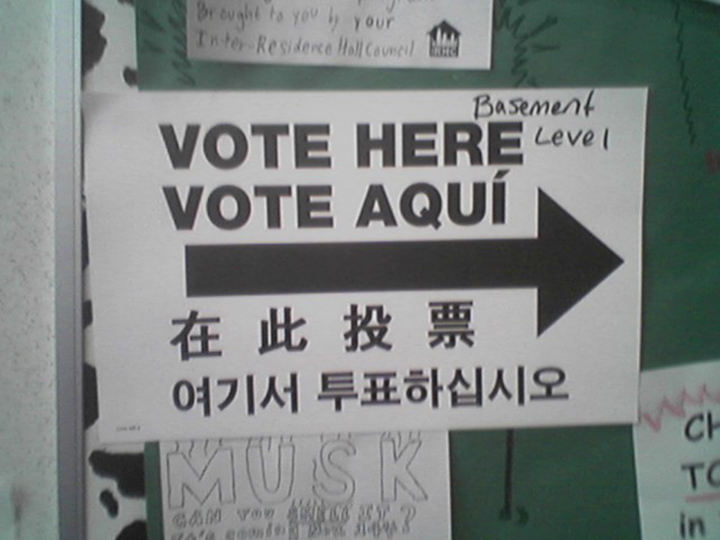Updated March 15, 2 p.m.
Most every New Yorker has an opinion about the contentious 2016 presidential campaign, but they’ll get a chance to make their opinions count by voting in next month’s presidential primary in the Empire State.
The primary is scheduled for Tuesday, April 19, and is open to anyone registered in a political party. Voters may only participate in their own party’s primary; those who are registered as independents or non-affiliated voters are ineligible to cast ballots.
If you aren’t already a registered voter and want to vote in either the Democratic or Republican primaries, you need to sign up quickly. Mailed voter registration forms must be postmarked by March 25 and received by the New York City Board of Elections by March 30. Click here to download an application.
Registered voters who want to switch party affiliations now, however, won’t be able to do so, as all party changes must have been received by the Board of Elections last October in order to be eligible to vote in their new party’s primary. They may, however, participate in the primary of their registered party.
The primary day polling hours are from 6 a.m. to 9 p.m. Voters who know they will be unable to vote on primary day may cast absentee ballots; visit the Board of Elections’ website for additional details.
Who are you voting for?
Those eligible voters who head to the polls in April will be casting ballots both for a presidential candidate and “pledged delegates” affiliated with a specific candidate. New York’s primary comes in the second half of the primary calendar, as candidates in both major parties seek the majority of delegates needed to secure the nomination.
The delegates attend their party’s national convention in the summer and officially select the party’s presidential and vice presidential nominees. That’s been a formality for the last 40 years, as the Democratic and Republican party nominees had secured the majority of delegates long before the convention.
But as the 2016 campaign has proven, nothing has been a formality.
The bulk of the attention, of course, has been on the Republican presidential contest. Billionaire celebrity Donald Trump, who has turned the race upside down with his rhetoric, currently holds the most delegates nationwide. Three rivals — Texas Senator Ted Cruz, Florida Senator Marco Rubio and Ohio Governor John Kasich — are looking to deny Trump the majority of delegates needed to secure the nomination outright.
There are 95 Republican delegates up for grabs in New York State; they are awarded to each candidate proportionally based on the voting results. The Republican nominee requires 1,237 total delegates to win the nomination.
If Trump doesn’t secure a majority of delegates once all primaries and caucuses are completed, the nomination will be decided at the Republican National Convention in Cleveland this July. The delegates attending the convention will be obligated to vote for their candidates on the first ballot, but more of them will be eligible to vote for any candidate they want on succeeding ballots until a majority of delegates votes for a nominee.
While the Republican race has been nothing but chaotic, the Democratic contest is a relatively calm, two-person battle between former Secretary of State (and New York Senator) Hillary Rodham Clinton and Vermont Senator Bernie Sanders. They are both seeking to win the 291 New York delegates on the line on April 19; as with the Republican primary, these delegates are awarded proportionally based on the voting outcome.
A Democrat must secure 2,383 delegates nationwide to win the nomination. Clinton holds a slight lead over Sanders in elected delegates, but has a commanding lead among superdelegates, non-elected Democratic party leaders free to vote for the candidate of their choice.

































